In the citrus tribe, bergamot stands out, not only because it is a funny phenomenon full of sparkling and charming, but also because we wanted to attribute several places of birth and equally numerous parents. Indeed, some say that it comes from the west: they claim that it was Christopher Columbus who discovered the bergamot tree in the Canary Islands, then brought back to Spain where, once cultivated, it would explain the name of the city of “Berga” located north of Barcelona. Except that the Italians do not hear it that way. They therefore retort that it is only necessary to consider a Lombard city in northern Italy, “Bergamo”, to be convinced that bergamot really originates there.
The essential oil is used in therapy , in perfumery (because it enters in the composition of cologne and perfumes of Guerlain), as well as in food industry in the famous bergamots of Nancy; a sweet with an exquisite scent, or in scented teas.
A little history
From 1650, the cultivation of bergamot developed considerably in Calabria on the Italian coast, enjoying a favorable microclimate. The bark was pressed by hand on a sponge to collect the scent oil. Its antimicrobial effects were also appreciated. In 1700, a Verona perfumer created a perfume that he named eau de Cologne because he lived in this German city of the same name; the success was ultimately considerable.
It is reported that in the Middle Ages Italian pilgrims going to Saint-Nicolas-de-Port brought bergamots and that the distiller of the castle of Lunéville would have made a pastille flavored with essential oil from 1751. The famous square candies with bergamot were made by confectioners in Nancy in 1850. And, in 1800, the English Lord Gray , a tea producer in India, flavored the leaves with bergamot, which produced the famous Earl Gray tea.
Valnet (twentieth century) attributes including essential oil effects antiseptic , antispasmodic , stimulating gastric and recommended in colic and intestinal infections, digestive problems and as an anthelmintic.
What are the pharmacological properties of Bergamot zest essential oil ?
Sedative property:
The linalool is anxiolytic inhaled. The essential oil also increases the level of neurotransmitter amino acids (glycine, GABA and glutamine) in the hippocampus. Bergamot oil also stimulates melatonin and in fact regulates the alternation of sleep. It is sedative of the central nervous system by inhalation (lowering of blood cortisol), calming , antistress by lowering the level of corticosterone and antidepressant . It thus reduces the symptoms of anxiety related to stress., mild mood disturbances and some pain syndromes. Inhaling bergamot essential oil therefore decreases preoperative anxiety.
Detoxifying and hepato-protective property:
The limonene acts on the liver, the action detoxifying and protective hepato is particularly related to the stimulation of cytochrome P450 or Phase 2 enzymes such as glutathione-S-transferase.
Hypocholesterolemic property:
Bergamot lowers cholesterol levels , stimulates the production of bile (choleretic) as well as its evacuation.
Property on the digestive system:
The limonene reduces nausea by acting on the motility and gastric acidity when gastroesophageal reflux . The antispasmodic effect is, however, linked to the presence of linalool , geranyl ketates and linalyl . Bergamot essential oil is also antiulcer, gastro-protective, and increases the secretion of mucus and HSP-70 shock proteins. It is notably an appetite regulator, carminative, digestive and laxative. The limonene it contains actually stimulates the digestive microcirculation .
Antispasmodic property:
Neurotropic spasmolytic , bergamot acts on the spasm by anticholinergic – parasympatholytic – effect with anti – secretory action in gastroduodenal ulcer . Bergamot essential oil is spasmolytic in hepatic, nephretic colitis and spasmodic diarrhea . Also musculotropic spasmolytic, this oil prevents spasm of bronchial, ureteral and intestinal smooth muscle fibers, as well as those of the bile ducts.
With volatile antispasmodic, neurotonic and nervous rebalancing active ingredients, bergamot is also a mild psychic antidepressant and a decongestant for the skin.
Antibacterial property:
Like many essential oils, bergamot is indeed antibacterial, antifungal (including anti-mycoplasma) and antiviral. It is also an excellent atmospheric antiseptic (by diffusion, but not very microbicidal by contact).
Anti-inflammatory property:
Anti-inflammatory by inhibiting gamma interferon and IL-4 production, bergamot essential oil is ultimately a bronchial anti-inflammatory, usable in asthma by inhibiting cytokines, the production of reactive oxygen species, and by inactivating the migration of eosinophils. Therefore, this oil is cortisone-like , and in fact stimulates the pituitary-adrenal cortex, which makes it an essential oil of interest in prolonged inflammatory conditions .
Property on the central and autonomic nervous system:
Balancing the autonomic nervous system , bergamot oil is a general tonic and stimulant (positive, because it ionizes positively, very easily). It increases the level of neurotransmitter amino acids (glycine, GABA and glutamine) in the hippocampus.
Also neuroprotective in preventing the accumulation of glutamate, bergamot is also an analgesic oil ( linalool, linalyl acetate ), by opioid effect.
Anticancer property:
Bergamot has a potential action in chemotherapy prevention and cancer chemotherapy by detoxification of carcinogens inducing phase I and phase II enzymes. It thus inhibits tumor promotion and progression by acting on the p21ras proteins with tissue differentiation activity.
Inducer of apoptosis, anti-angiogenic and anti-tumor, this oil inhibits malignant cell growth . It is in particular preventive of skin cancer by reducing the chemo-induction of hepatocellular carcinomas (inhibition of FPTase activity, inhibition of P21ras expression) and immunostimulant .
Other properties:
- Anti hypertensive
- Usable in food preservation
- Cardiac regulator ( linalyl acetate )
- Repels mosquitoes
- Mucolytic and expectorant, respiratory oxygenating and secretolytic, it increases the kinetics of mucociliary transport in the sinuses
- Cardioprotective, de facto reduces the deleterious cardiovascular effects of acute exposure to nicotine
- Respiratory decongestant
- Lymphotonic
Does Bergamot essential oil require precautions for use?
- Contraindicated in pregnant women (induces uterine contractions) or breastfeeding
- Do not combine with cortisone , risk of drug interaction
- Inducer of cytochrome P450 (CYP 2B1 and CYP 2C), risk of drug interactions
- High dose epilepticus ( esters )
- Beware of possible gynecomastic effects in prolonged use, linalyl acetate shows anti-androgenic activity and low estrogenic activity by binding to estrogen receptors. The linalyl acetate prevents the production of testosterone, avoid prolonged use in among males as endocrine disruptor
- Contraindicated in children under 7 years old
- Dermocaustic, possible skin irritation in pure form
- Bergamot is a potent competitive inhibitor of CYP2A6, inhibition of CYP 2A6 has been identified as a possible therapeutic approach to smoking cessation, thus giving significant interest to essential oils of bergamot and lime
- Risk of photosensitization. Do not apply before sun exposure
- The IFRA (International Fragrance Association) advises against the use of complete bergamot essential oil (containing furanocoumarins) at more than 0.4% in cosmetic products.
- Authorized in animals for external use
Medical bibliographic sources and clinical trials :
- Occhiuto F, Limardi F, Circosta C. Effects of the Non-Volatile Residue from the Essential Oil of Citrus bergamia on the Central Nervous System. Pharmaceutical Biology, Volume 33, Issue 3 September 1995
- Ni CH, Hou WH, Kao CC, Chang ML, Yu LF, Wu CC, Chen C. The anxiolytic effect of aromatherapy on patients awaiting ambulatory surgery: a randomized controlled trial. Evid Based Complement Alternat Med. 2013
- Amantea D, Fratto V, Maida S, Rotiroti D, Ragusa S, Nappi G, Bagetta G, Corasaniti MT. Prevention of Glutamate Accumulation and Upregulation of Phospho-Akt may Account for Neuroprotection Afforded by Bergamot Essential Oil against Brain Injury Induced by Focal Cerebral Ischemia in Rat. Int Rev Neurobiol. 2009
- Corasaniti MT, Maiuolo J, Maida S, Fratto V, Navarra M, Russo R, Amantea D, Morrone LA, Bagetta G. Cell signaling pathways in the mechanisms of neuroprotection afforded by bergamot essential oil against NMDA-induced cell death in vitro. Br J Pharmacol. 2007
- Perna S, Spadaccini D, Botteri L, Girometta C, Riva A, Allegrini P, Petrangolini G, Infantino V, Rondanelli M. Efficacy of bergamot: From anti-inflammatory and anti-oxidative mechanisms to clinical applications as preventive agent for cardiovascular morbidity, skin diseases, and mood alterations. Food Sci Nutr. 2019
- Furneri PM, Mondello L, Mandalari G, Paolino D, Dugo P, Garozzo A, Bisignano G. In vitro antimycoplasmal activity of citrus bergamia essential oil and its major components. Eur J Med Chem. 2012
- Fisher K, Phillips CA. The effect of lemon, orange and bergamot essential oils and their components on the survival of Campylobacter jejuni, Escherichia coli O157, Listeria monocytogenes, Bacillus cereus and Staphylococcus aureus in vitro and in food systems. J Appl Microbiol. 2006
- Sakurada T, Mizoguchi H, Kuwahata H, Katsuyama S, Komatsu T, Morrone LA, Corasaniti MT, Bagetta G, Sakurada S. Intraplantar injection of bergamot essential oil induces peripheral antinociception mediated by opioid mechanism. Pharmacol Biochem Behav. 2011
- Mehmet Karaca, Hanefi Özbek, Aydın Him, Mehmet Tütüncü, Hasan Altan Akkan, Veysel Kaplanoğlu. Investigation of anti-inflammatory activity of bergamot oil. Eur J Gen Med 2007

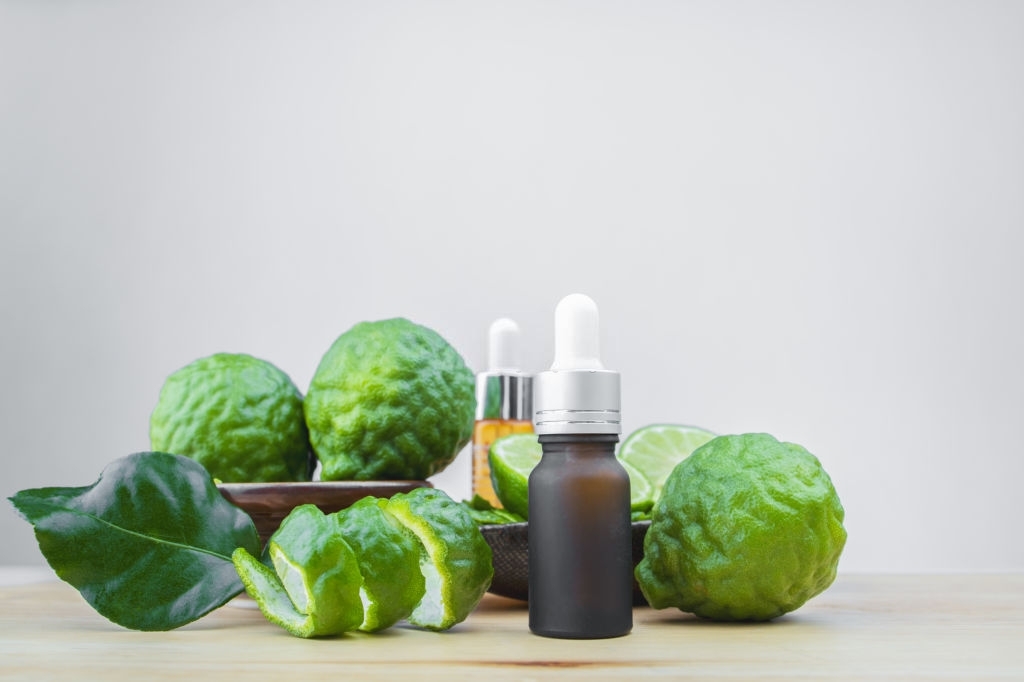

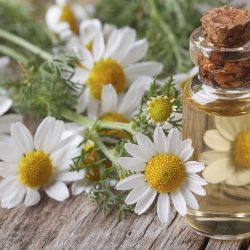
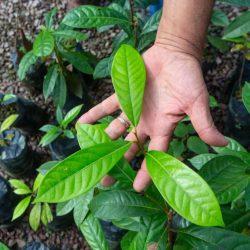
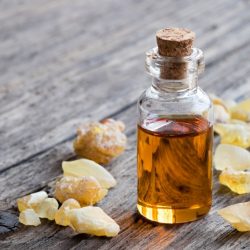
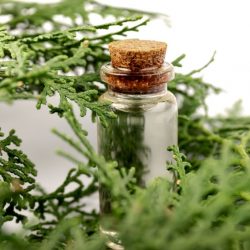
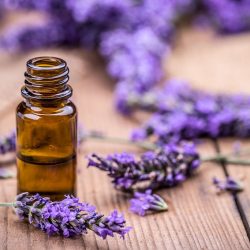
People who want to sleep better can use bergamot essential oil and sleep soundly. It has been clinically proven that this essential oil calms you and promotes restful sleep, proving total relaxation and comfort to your body. Bergamot also relieves tension and anxiety, which are the main cause for discomfort.